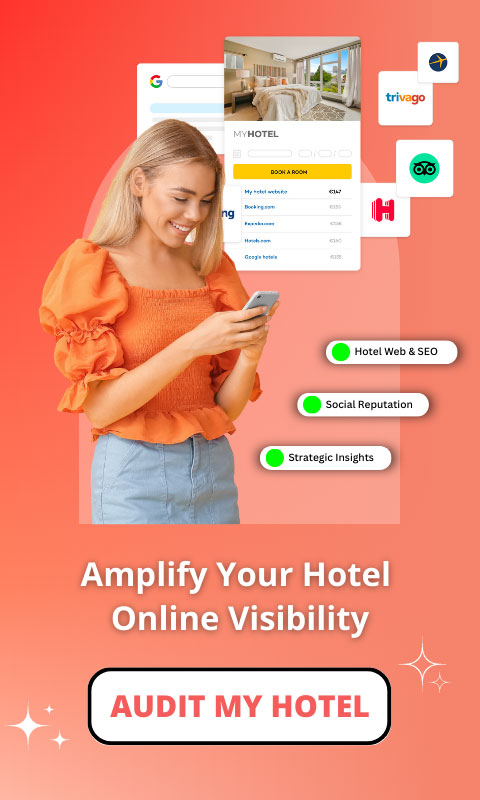- Understanding Keyword
- Keyword Research
- Marketing Goals As The Root Of Your Keyword Research
- Types Of Search Intent
4.1 Informational
4.2Transactional
4.3 Navigational
4.4 Local - Long-term vs Short-term Target Audience
- Conclusion
Understanding Keyword
A keyword can be defined as a search query (combination of words or a word) people used on search engines such as Google, Yahoo, & Bing to find information about their subject of interest.
There are only a handful of pages (around 10) that makes it to the first page and this is where most of the clicks happen. Search engines such as Google analyze keywords on every indexed page on the internet to determine what the page is about, and will show the most relevant pages to the searchers. This is why keyword optimization is key to your SEO success. By imagining how many pages exist on the internet, you can have a picture of how important optimizing & choosing your keyword is.
Even though the thought of it is scary, there are still many opportunities to rank for keywords and draw in search traffic for your business or brand. You just have to find the right keywords for your business!
Keyword Research
Keyword research is the process of finding the most related search queries to the product or services that your business offers, that your target market use on search engine searches. Choosing the right keywords for your business takes many factors into consideration. Important parameters to consider include avg. monthly search volume, keyword difficulty, your competition for this keyword, and search intent behind the keyword.
Read More: Understanding Domain Authority, How It Affects Your Website, & How To Improve It
Marketing Goals As The Root Of Your Keyword Research
Before you start your keyword research, you need to understand your marketing goals. You first need to define your target audience, which part of the sales funnel will this keyword be used for, and how a search result might lead to sales. Understanding the sales funnel (how customers progress through the buying process) is also an important part of determining a searcher’s intent for your keyword choices. We will go through each search intent later in the blog. Without having a clear objective behind your keyword research, you might waste your precious resources and time on keywords that potentially won’t give your business any return.

Types Of Search Intent
What is search intent? Search intent is the phycological reason behind why a person makes a search on a search engine. Are they looking to buy a product? Are they trying to find information about something?
The three common search intents are:
- Informational Intent
- Transactional Intent
- Navigational Intent
- Local Intent
Informational
As the name suggests, informational searches are made when searchers are looking for information about something. This can be as broad as “Indonesia flag color” to as narrow as “creation date of the Indonesia flag.” Informational searches are best to be served with pages that contain valuable & comprehensive information packed together, such as a blog post or a research paper. Keep in mind that informational searches don’t necessarily be a question.
Search examples: “Indonesia flag color” and “what color does the Indonesia flag contain?” might give you the same informational result.
Transactional
Transactional searches are made when searchers are looking to buy a product or service. They have a clear intention in mind that they want to purchase a product. Keep in mind that this doesn’t necessarily mean searchers have a clear brand in mind as to where they’ll get their products or services from. As a business, your dedicated landing page that competes for transactional keywords must contain a clear CTA (Call To Action), a USP (unique selling point), and something promotional. Transactional searches are best to be served with product pages or listing pages.
Search example: “cheap business class flight ticket to the USA” or “second-hand car for sale”
Navigational
Navigational searches are made when a searcher is looking for a specific product, page, service, or name through a search engine. For example, if a searcher types “Nike homepage”, we know that it’s a navigational search because it’s most likely that the searcher is looking for the homepage of the brand Nike. This doesn’t necessarily mean that it is limited to a brand search. A searcher might search for a product of a specific brand but sell on a different platform. For example, when a searcher is looking to buy Adidas ultra boost shoes from Indomart, possible search queries could be “Adidas ultra boost Indomaret”.
Search example: “SatuVision Marketing Agency”
Read More: Introductory To Internal Linking in SEO – Definition & How It Helps Your On-Page SEO
Local
Local searches are made when searchers are looking for a query with a location-based attribute such as a city name, state, county, zip code, or “near me”. Local searches have a different ranking system compared to regular searches. The ranking factor for local searches is determined by Google reviews, the location of the searcher (proximity), third-party citations (such as local directories), and Google star rating.
Search example: “best restaurant near me” or “best hotel in Bali”
Long-term vs Short-term Target Audience

The funnel above shows that only 5% of audiences who encounters your brand have the intention to purchase your product/services while the rest 95% do not. However, the 95% “out-market” audience might have an interest in your brand and have the potential to be converted into “in-market” buyers.
By keeping this in mind, you need to consider which of these are you trying to target. Is your organic campaign going to target immediate customers with a strong purchase intent (short-term) or whether your organic campaign is trying to build awareness, relationships, & trust with potential customers (long-term)?
If your organic campaign is going for the long-term game, you might want to build brand awareness of your brand or provide educational content to your target market. You can do this by using informational intent keywords.
For example, if your brand is selling fitness supplements, keywords that target out-of-market buyers might be: ‘difference between creatine monohydrate and hcl’. You can write a blog to specifically answer these questions and compete on the seed keyword ‘creatine’.
If your organic campaign is going for the short-term game, you might want to go for keywords with strong purchase intent. For example, if your brand is selling fitness supplements, keywords that target the in-market might be ‘creatine monohydrate review’.
Read More: Introductory Guide To SEO Backlinks – How It Benefits Your Website In 2024
Conclusion
To use keywords to your business advantage, you need to integrate your marketing goals and business goals into your keywords. This is an often forgotten step before a digital marketer is conducting keyword research. Understanding your target audience will help your business choose the right seed keyword while understanding your business’ sales funnel will help you expand on your seed keyword. You need to understand the psychology of your target market to be able to serve target the right keyword at the right touchpoint and give the right content for your target market.
Tips: Have a designated landing page with optimized keywords to target different search intent and different sales funnel.





